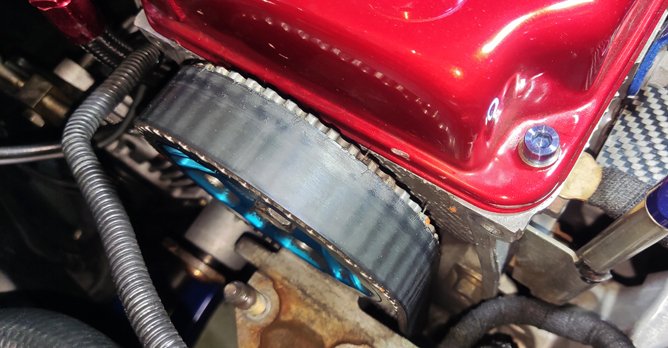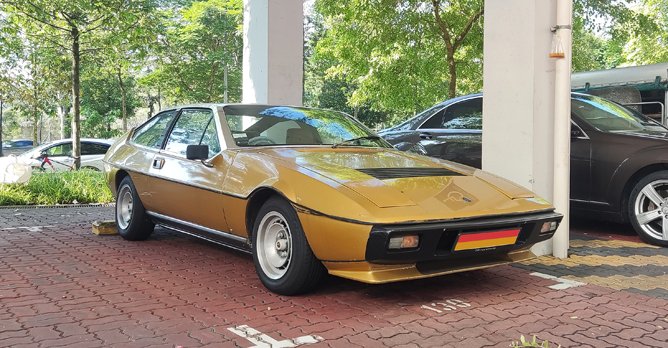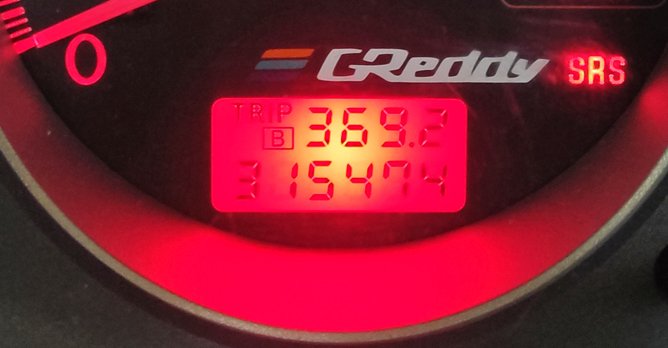Mythbusted: Is high mileage always a con when it comes to buying used cars?
13 Dec 2022|29,146 views
Mileage is one of the most prominent indicators that used car buyers depend on when trying to make a decision on the purchase of a car. Common wisdom is that low mileage is a universal marker of a car in pristine condition - just look at the people who choose to keep their luxury and exotic cars at home for fear of chalking up mileage, which can result in the loss of value of these cars.
What if I told you that mileage doesn't really matter as much as you think, and you shouldn't just flock towards a low-mileage car, nor should you avoid a high-mileage one like the plague? You'll probably give me a weird look and shrug me off as someone that doesn't know what he's talking about. But if you haven't already left, do read on and let me explain, I promise your time won't be wasted.
Cars don't fare well with underutilisation
On this aspect, cars are kind of like human beings, and sitting around not doing anything for a long time results in detrimental effects to their health.
Here's an exaggerated example to prove the case, but just take a look at cases of barn finds - having sat for a long time, these cars often require a full overhaul and an extensive replacement of parts to get up and running again.
And, there is a reason for this. Components made from rubber and plastic, such as undercarriage bushings, hoses, wiring (their rubber housings) and interior bits, tend to become brittle and deteriorate over time. If you chanced upon a car that has only covered 10,000km over the past seven years, it might not exactly be the near brand-new condition car that you are imagining it to be.
Now, if we are just talking about a car that sees much lesser use instead of one that has been stored, there's still a good chance that parts and components have not been looked at or serviced regularly, which can introduce plenty of other issues.
Mileage doesn't tell the whole story

You'll know what I'm talking about if you have ever sat in a Private Hire Vehicle that is rather new and yet feels like an old, beaten-down car.
A low-mileage car that hasn't been serviced since the start of its life and used haphazardly could easily be in a much poorer condition than a much higher mileage car that has been well taken care of, with regular and quality servicing.
Due to servicing routines, there is actually a magic number

Hence, a car that only has 90,000km on the odometer likely hasn't gone through its major servicing at the 100,000km mark. This would mean that you'll likely have to get it sorted out shortly into the duration of your ownership, incurring additional costs.
On the other hand, if you were to purchase a car with 140,000km driven, there's a good chance that worn components have already been replaced and the car is now as reliable as new. The point is, buying a car that's still 'too new' to have its original components replaced might not necessarily be a good thing.
Odometer tampering is a prevalent issue
The odometer of a car is something that can be tampered with relative ease, and there are indeed plenty of cases of odometer tampering.
Hence, you really shouldn't build your entire judgement on the condition of the car that you are intending to purchase on such unreliable data.
Instead, you should place more attention on the car's actual condition. Does the car's undercarriage make weird noises, does the steering feel loose and vague, is the interior of the car excessively worn and are there any clear issues with oil leaks or other problems? If it is riddled with problems, having a low mileage wouldn't mean anything at all - in fact there's even a good chance that the odometer has been tampered with.
It's clear by now that high mileage isn't necessarily a bad thing. At the end of the day, while mileage is a practical measure of a car's condition, nothing matters more than the car's actual state - you can always send it for a thorough check by an expert to ascertain the condition of the car.
Here are some other articles that you might be interested in:
Mythbusted: Is a smaller engine always more fuel efficient?
Looking for a used luxury car? Here are the five most listed models
Never commit these acts of road rage while driving, no matter how angry you are
Here's how you can drive a manual transmission equipped car like a professional driver
Want to level up your driving skills? Here are five exercises that will make you a better driver!
Looking for a used car? Check out the ones available in the market here!
Mileage is one of the most prominent indicators that used car buyers depend on when trying to make a decision on the purchase of a car. Common wisdom is that low mileage is a universal marker of a car in pristine condition - just look at the people who choose to keep their luxury and exotic cars at home for fear of chalking up mileage, which can result in the loss of value of these cars.
What if I told you that mileage doesn't really matter as much as you think, and you shouldn't just flock towards a low-mileage car, nor should you avoid a high-mileage one like the plague? You'll probably give me a weird look and shrug me off as someone that doesn't know what he's talking about. But if you haven't already left, do read on and let me explain, I promise your time won't be wasted.
Cars don't fare well with underutilisation
On this aspect, cars are kind of like human beings, and sitting around not doing anything for a long time results in detrimental effects to their health.
Here's an exaggerated example to prove the case, but just take a look at cases of barn finds - having sat for a long time, these cars often require a full overhaul and an extensive replacement of parts to get up and running again.
And, there is a reason for this. Components made from rubber and plastic, such as undercarriage bushings, hoses, wiring (their rubber housings) and interior bits, tend to become brittle and deteriorate over time. If you chanced upon a car that has only covered 10,000km over the past seven years, it might not exactly be the near brand-new condition car that you are imagining it to be.
Now, if we are just talking about a car that sees much lesser use instead of one that has been stored, there's still a good chance that parts and components have not been looked at or serviced regularly, which can introduce plenty of other issues.
Mileage doesn't tell the whole story

You'll know what I'm talking about if you have ever sat in a Private Hire Vehicle that is rather new and yet feels like an old, beaten-down car.
A low-mileage car that hasn't been serviced since the start of its life and used haphazardly could easily be in a much poorer condition than a much higher mileage car that has been well taken care of, with regular and quality servicing.
Due to servicing routines, there is actually a magic number

Hence, a car that only has 90,000km on the odometer likely hasn't gone through its major servicing at the 100,000km mark. This would mean that you'll likely have to get it sorted out shortly into the duration of your ownership, incurring additional costs.
On the other hand, if you were to purchase a car with 140,000km driven, there's a good chance that worn components have already been replaced and the car is now as reliable as new. The point is, buying a car that's still 'too new' to have its original components replaced might not necessarily be a good thing.
Odometer tampering is a prevalent issue
The odometer of a car is something that can be tampered with relative ease, and there are indeed plenty of cases of odometer tampering.
Hence, you really shouldn't build your entire judgement on the condition of the car that you are intending to purchase on such unreliable data.
Instead, you should place more attention on the car's actual condition. Does the car's undercarriage make weird noises, does the steering feel loose and vague, is the interior of the car excessively worn and are there any clear issues with oil leaks or other problems? If it is riddled with problems, having a low mileage wouldn't mean anything at all - in fact there's even a good chance that the odometer has been tampered with.
It's clear by now that high mileage isn't necessarily a bad thing. At the end of the day, while mileage is a practical measure of a car's condition, nothing matters more than the car's actual state - you can always send it for a thorough check by an expert to ascertain the condition of the car.
Here are some other articles that you might be interested in:
Mythbusted: Is a smaller engine always more fuel efficient?
Looking for a used luxury car? Here are the five most listed models
Never commit these acts of road rage while driving, no matter how angry you are
Here's how you can drive a manual transmission equipped car like a professional driver
Want to level up your driving skills? Here are five exercises that will make you a better driver!
Looking for a used car? Check out the ones available in the market here!

















